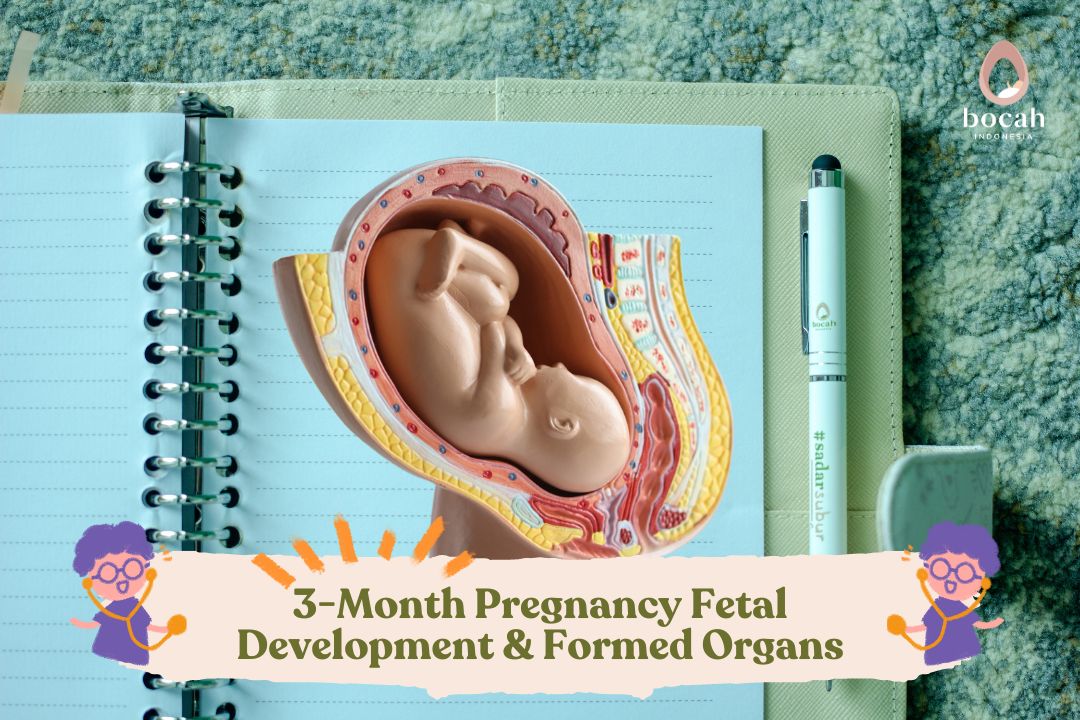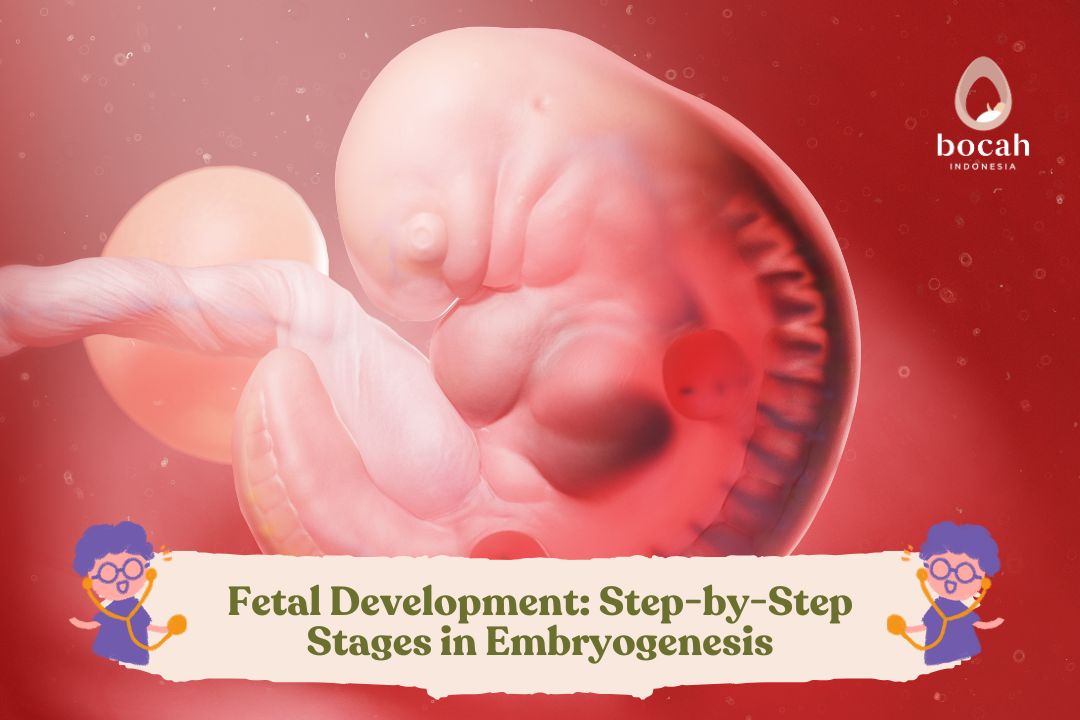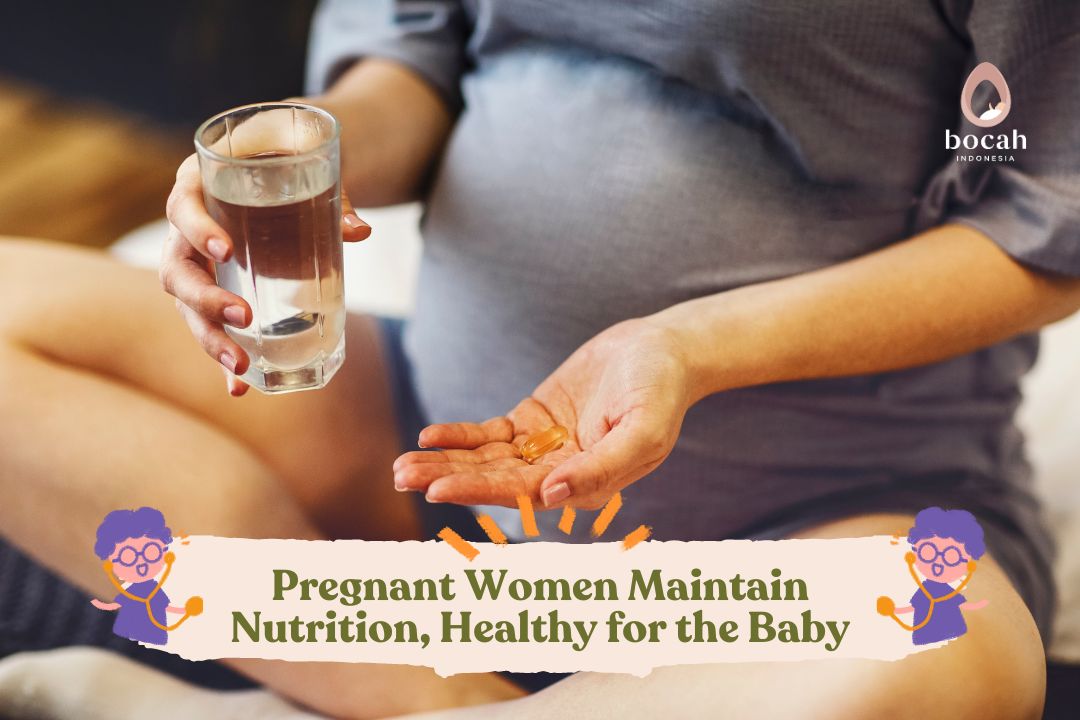4 Months Pregnant: Symptoms, Baby’s Development, and Size

Being four months pregnant signifies that you’ve entered the second trimester of pregnancy. What are the symptoms, and how big is the developing baby?
Welcome to the second trimester of pregnancy! The fourth month, which corresponds to 13 to 16 weeks of pregnancy, marks the beginning of the so-called “honeymoon period.” Energy levels have returned, and pregnant mothers can enjoy various foods without being haunted by nausea or vomiting.
During this month, expectant mothers experience quite a few changes in their bodies. Meanwhile, the baby is undergoing a rapid growth and development phase.
Changes in the mother’s body at four months pregnant
In the fourth month of pregnancy, the belly of the mother starts to show. This is because the uterus is growing and expanding towards the abdominal cavity. However, the position of the uterus is still a few centimeters below the navel. Weight gain is also starting to be noticeable, around 4-5 kg from before pregnancy.
Other physical changes that occur at four months pregnant include:
Tanya Mincah tentang Promil?
- Skin changes: Increased pregnancy hormones may cause some pregnant mothers to experience acne. Pregnant mothers can still use skincare products as long as they don’t contain retinol, hydroquinone, and parabens.
- Breast changes: Starting early in the fourth month, the nipples and areolas of the breasts will darken. Enlarged blood vessels due to increased blood flow will also become visible under the skin. Breast size will continue to increase and may sometimes feel sore.
- Edema: Some pregnant mothers may experience swelling in the legs and ankles, which can continue until the end of pregnancy. To alleviate this, it’s important to rest frequently during activities and avoid prolonged standing or sitting. If abnormal swelling occurs, especially in the face and hands, visit a doctor promptly.
- Leg varicose veins: The increased volume and blood flow can enlarge the veins in the lower extremities (legs), leading to the development of varicose veins.
These mild changes are a normal part of pregnancy.
Symptoms that may arise at four months pregnant
During this month, the level of beta-hCG hormone starts to decrease, while progesterone and estrogen levels increase. As a result, symptoms of nausea and vomiting significantly decrease, if not disappear altogether.
The growing uterus, protruding from the pelvic cavity, will exert pressure on surrounding organs. This can lead to digestive issues like heartburn and constipation, shortness of breath, and frequent urination.
In addition, to accommodate the rapid growth of the baby, the mother’s blood volume and circulation increase. However, this can cause discomforting pregnancy symptoms such as bleeding gums, nosebleeds, or nasal congestion. Dizziness or a feeling of almost fainting is also common due to these changes.
Baby’s growth and development at four months pregnant
In the fourth month of pregnancy, the baby’s length is approximately 18 cm and weighs around 100 grams. To put it in perspective, the baby is about the size of an avocado. However, the amount of fat on the baby is not as much as that in an avocado at this stage. The baby still appears skinny, and its skin is translucent. If you were to look inside the womb, you could clearly see the baby’s blood vessels beneath its thin skin.
During this time, the baby’s body starts to be covered in fine hair called lanugo. This lanugo helps a waxy substance called vernix caseosa stick to the baby’s skin. This waxy layer protects the unborn baby’s skin from irritating fluids and infections in the womb.
Reproductive organs are rapidly developing, and sperm and egg follicles are beginning to emerge. The baby’s spinal cord and small back muscles are gaining strength, allowing the baby to straighten its head and neck more.
The most significant development in the fourth month occurs in the head, particularly in the eyes and ears. Developing facial muscles allow the baby to display facial expressions and even wrinkles. The baby’s eyes begin to move from side to side and are becoming sensitive to light, although the eyelids are still closed.
The baby also begins to hear the mother’s voice from inside the womb. However, this ability will fully develop around the 18th week of pregnancy. Pregnant mothers can start talking and singing to help the baby recognize their voice. This is also a great way to bond with the baby.
Another important development is the emergence of the thumb-sucking reflex. This skill will become valuable for nursing later. The baby’s circulatory system is now active and functioning. In fact, the baby’s heart at four months of pregnancy can pump around 25 liters of blood per day.
Tips for a healthy and comfortable four-month pregnancy
Here are some suggestions to help you maintain comfort and health during the second trimester:
- Continue regular physical activity. Safe exercises during pregnancy generally include walking, swimming, yoga, and pilates. Your choice may vary, but it’s important to engage in exercises that have been approved by your doctor.
- Consume healthy sources of calories during exercise. During pregnancy, you can consume an extra 100-200 calories for every half-hour of vigorous exercise. Opt for nutrient-rich and healthy sources of calories, such as smoothies or combinations of yogurt with cereal/granola, fruits like apples/bananas/pears, whole wheat bread with peanut butter spread, and cheese.
- Consume a balanced, nutritious diet. During pregnancy, you should consume about an extra 300 calories per day. However, there’s a healthy way to gain weight during pregnancy. Choose foods that are:
- Rich in fiber, whole grains, vitamins, iron, folic acid, and antioxidants.
- High in healthy fats, such as those found in peanut butter and avocados.
- Rich in protein and calcium to support the health of both the mother’s and baby’s muscles and bones.
- Stay hydrated. Pregnant mothers are prone to dehydration, which can lead to fatigue, headaches, and lightheadedness.
- Sleep on your left side. Use pillows around your body and between your legs for comfort. This sleeping position improves blood circulation to the developing fetus. Avoid sleeping on your back.
- If you experience bleeding gums, consult a dentist to prevent complications.
- Nosebleeds and nasal congestion are common in this month. Always have tissues and necessary medications with you. You can use a saline spray or flush to alleviate these issues. Additionally, use a humidifier in your room or apply a little petroleum jelly under your nose to reduce dryness.
- Manage back pain. Instead of being sedentary due to pain, try practicing yoga, pilates, or muscle stretches. These activities can help stretch and relax tense muscles in the back.
- Start looking for maternity clothes as your belly starts to grow. At this point, your usual clothes may start to feel tight and uncomfortable.
- Wear cotton underwear. Vaginal discharge is common during pregnancy, and its amount may increase as your pregnancy progresses. Ensure that the genital area stays clean and dry, and opt for cotton underwear that absorbs sweat.
- Enjoy intimate moments with your partner during these months. Maintaining intimacy is essential for a healthy marriage. This way, both you and your partner can stay connected and support each other through the pregnancy journey. However, make sure to consult with your doctor first to ensure there are no contraindications for intimate activities during pregnancy.
When to see a doctor at four months pregnant?
If you experience any of the following symptoms during the fourth month of pregnancy, contact your doctor immediately:
- New or significantly increased bleeding
- Heavy bleeding on a pad
- Severe back or abdominal pain
- Fever above 38.5 degrees Celsius
- Pain during urination
- Blurred vision
- Extreme dizziness or fainting sensation
- Leakage of fluid from the vagina (indicating rupture of the amniotic sac)
- Persistent or worsening headaches
- Continuous nausea or diarrhea
Experiencing any of these symptoms does not necessarily indicate a problem with your pregnancy. However, it’s still important to consult a doctor to rule out serious causes that could lead to complications in your pregnancy.
Conclusion
For those entering the fourth month of pregnancy, enjoy these times. This is the best time to savor life and travel before discomfort returns in the third trimester. Stay healthy!
Source:
- American College of Obstetricians and Gynecologists. [Last reviewed December 2021]. How your fetus grows during pregnancy. FAQ 156. URL: https://www.acog.org/womens-health/faqs/how-your-fetus-grows-during-pregnancy
American College of Obstetricians and Gynecologists. Changes during pregnancy. PFSI026. URL: https://www.acog.org/womens-health/infographics/changes-during-pregnancy. - Cleveland Clinic. [Last reviewed 3 Mar 2023]. Fetal development. URL: https://my.clevelandclinic.org/health/articles/7247-fetal-development-stages-of-growth.
- Fowler JR, Mahdy H, Jack BW. Pregnancy. [Updated 2023 Apr 22]. In: StatPearls [Internet]. Treasure Island (FL): StatPearls Publishing; 2023 Jan-. URL: https://www.ncbi.nlm.nih.gov/books/NBK448166/
- UNICEF Parenting. Pregnancy milestones. URL: https://www.unicef.org/parenting/pregnancy-milestones.










